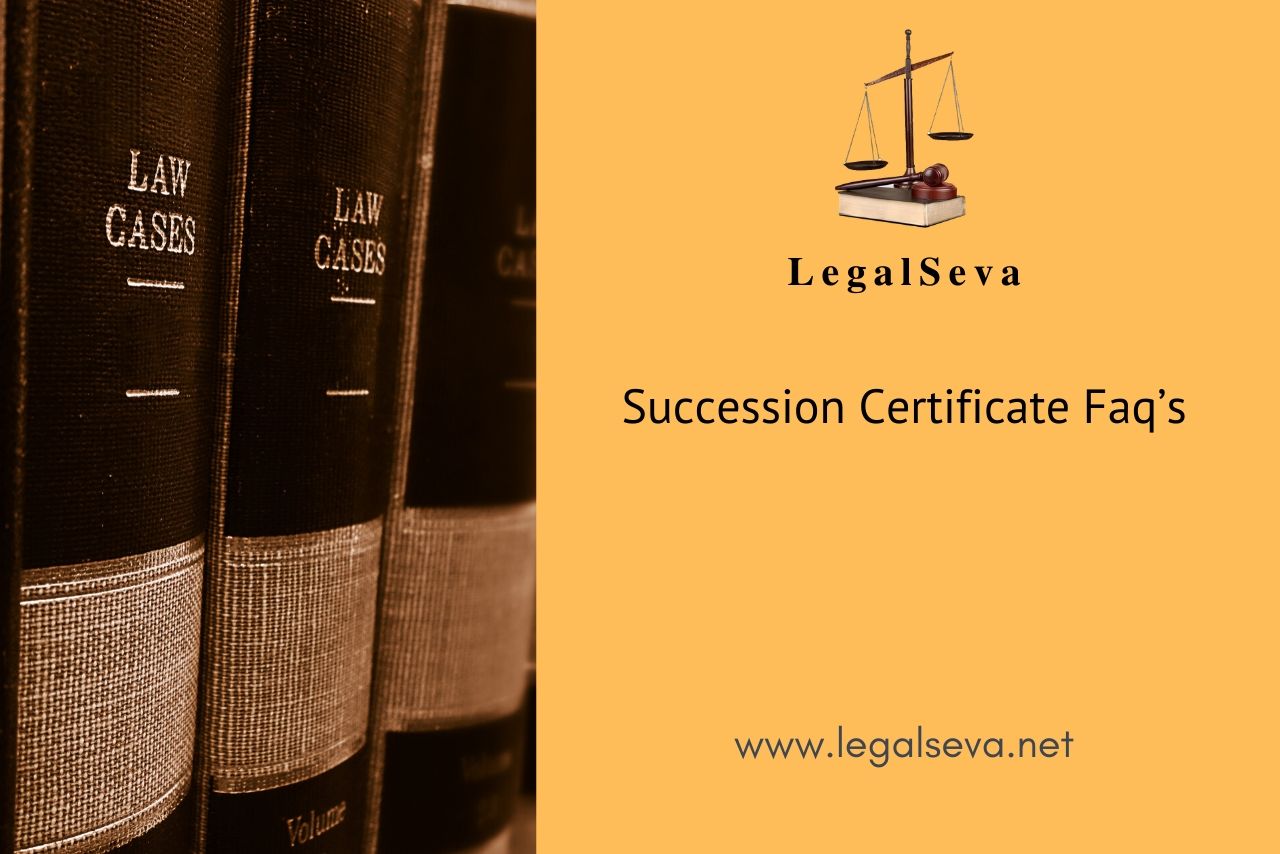Last Updated on June 20, 2024 by Satish Mishra
What is a Succession Certificate?
Succession Certificate is a certificate granted by the Courts in India to the successors of a person dying intestate leaving debts and securities. A succession certificate is granted to the successor of a deceased person who has not documented a will. This certificate helps in establishing the credibility of the successor and also to give the certificate holder an authority over the deceased person’s debts and securities.
Also Read- LEGAL HEIR CERTIFICATE & SUCCESSION CERTIFICATE DIFFERENCE?
Who issues a succession certificate?
The succession certificate is issued by the district judge of competent jurisdiction. Competent jurisdiction refers to the district in which the deceased resided at the time of death. If no such place is available, then the place where the deceased may possess any property is considered.
Also Read- SUCCESSION CERTIFICATE AND HOW TO GET IT?
What information has to be submitted in a petition for obtaining a succession certificate?
The application is to be made to the District Judge with the following inclusions.
1. The time of the death of the deceased.
2. The ordinary residence of the deceased at the time of death.
3. If no such residence is available, the details of the property which is located in the jurisdiction of the district judge where the petition is filed.
4. Details of immediate family members and near relatives along with their individual addresses.
5. The rights that the petitioner claims to hold.
6. The absence of any reason which invalidates the grant of the certificate.
7. The debts and the securities in respect of which the application is made.
Also Read- HOW TO PROBATE A WILL IN CHANDIGARH PANCHKULA MOHALI
What is the procedure for obtaining the certificate?
STEP 1: Submit the verified and signed application to the District Judge along with the court fees.
STEP 2: The District Judge will accept the application if he deems fit and set a date for the hearing and the same will be communicated with all the parties involved.
STEP 3: After the hearing, the Judge decided if the applicant is within his rights to apply for the certificate and grant the same if he/she is satisfied.
STEP 4: The Judge may also require the applicant to provide a bond with one or more sureties or any other security so as to make good any possible loss arising out of the use or misuse of such certificate.
It is important to note that the Judge may grant an extension in respect of any debt or security not mentioned in the application.
If two or more applicants apply for the succession certificate, the Judge may decide who to grant the certificate on the basis of their reasons and interests for applying.
Also Read- LEGAL HEIR CERTIFICATE IN CHANDIGARH
What is the validity of the certificate?
The succession certificate is valid in the entire Indian territory. If the certificate is granted to a Foreign national by an Indian representative, it is only valid if it is duly stamped.
Why is it important to acquire a succession certificate?
A succession certificate grants protection to all the parties paying debts and when such debts are made in sound faith. The certificate holder can receive any interest/dividend on the securities. He/she can also transfer the said securities to anyone. All the payments made to and by the certificate holder on behalf of the deceased person will be legally valid.
However, this does not fundamentally mean that the certificate holder is the owner of the securities or the legal heir. The legal heir/heirs are determined by a separate procedure of law.
Also Read- LETTER OF ADMINISTRATION
The format of a succession certificate.
IN THE DISTRICT COURT OF MUMBAI, MAHARASHTRA
Petition No. xx of 20xx
Date of Institution: xx/xx/xxxx
Date of Decision: xx/xx/xxxx
Mr. A, son of Mr. P R/o Mumbai
….PETITIONER
Vs.
Mr. X
Mr. Y, son/wife
of Mr. Z, a resident of Mumbai
….RESPONDENTS
PETITION UNDER SECTION 372 of the INDIAN SUCCESSION ACT, 1925, FOR GRANT OF SUCCESSION CERTIFICATE
SUCCESSION CERTIFICATE
To,
Mr. A, son of Mr. P R/o Mumbai
WHEREAS, you applied on xx days of xx for a Certificate under Section 372 of the Indian Succession Act, 1925, in respect of 100 debentures of QPR Ltd. having nos. xx to xx owned by Mr. P, a resident of Mumbai, who was an employee of QPR Ltd. having employee no. xxxxxx from the head office situated at Mumbai, Maharashtra.
This certificate is accordingly granted to you and empowers you to collect those debts.
Given under my hand the seal of the court on this xx day of xx
Mr. J Judge (xx Division)
(Signature)
Also Read- SHOULD I GET LEGAL HEIR CERTIFICATE OR SUCCESSION CERTIFICATE?
You must consult a good Succession Certificate, Property, Family, Inheritance, Legal Heir Certificate, Probate Will Lawyer/advocate of Chandigarh Panchkula Mohali Zirakpur Kharar Derabassi for this task.
This post is written by Ahana Kurande of Mumbai University (Law). For more info, please dial 99888-17966.
